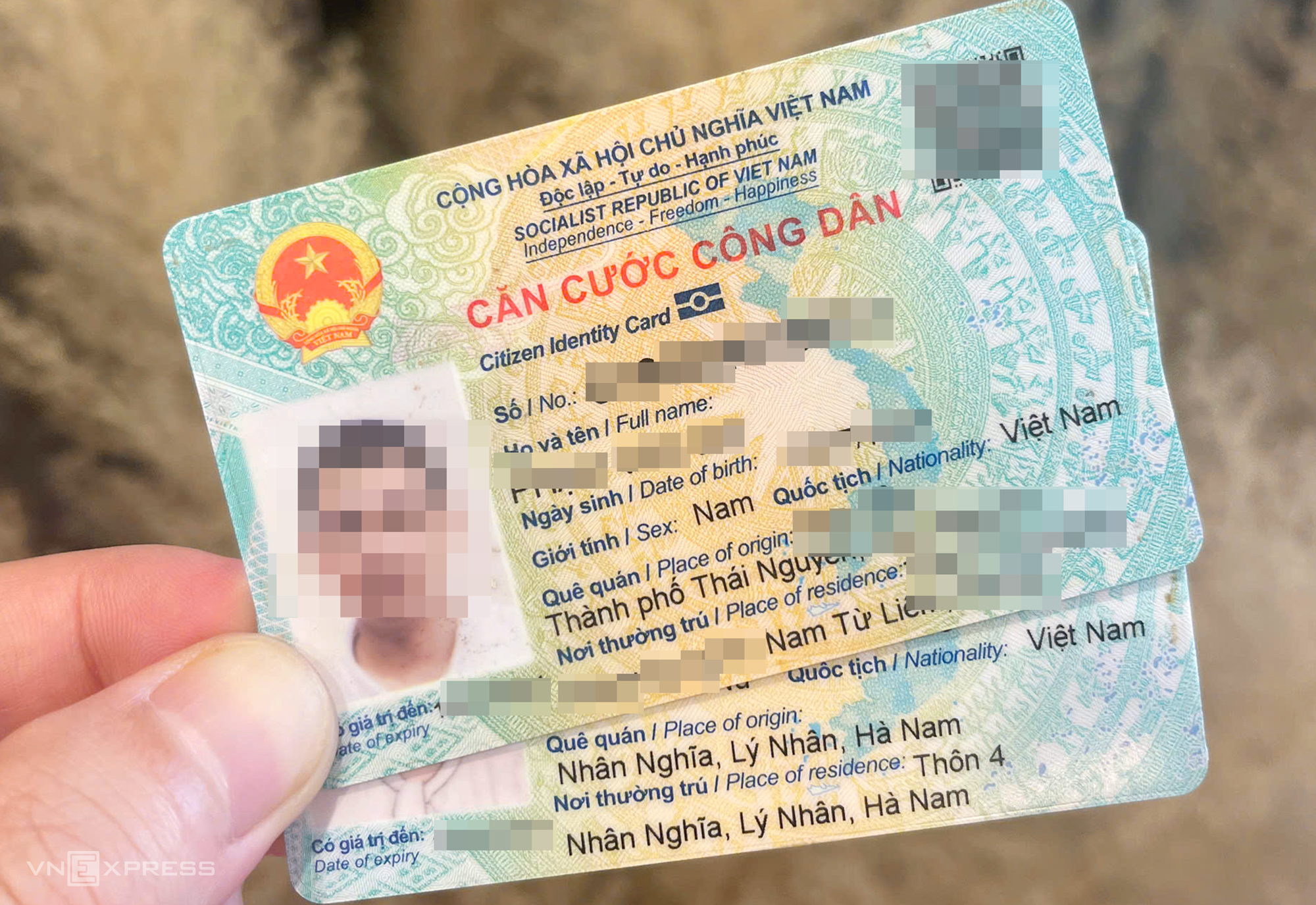This information is outlined in the appraisal documents for the draft law amending and supplementing several articles of 10 laws related to security and order, drafted by the Ministry of Public Security. The ministry proposes amending and supplementing several clauses of eight articles within the Citizen Identity Law.
Current law states that after the merger of provincial-level administrative units, citizens are not required to renew their identity cards. Existing cards remain valid until their expiry date. However, citizens can still choose to renew their cards at the ages of 14, 25, 40, and 60.
In the draft amendment to the Citizen Identity Law, the Ministry of Public Security proposes that those seeking to renew their cards due to administrative unit changes can do so online via the public service portal and the national identification application. This aims to accommodate practical situations and provide convenience for citizens.
Besides online renewals, the Ministry of Public Security retains the option of in-person applications at designated locations. Upon request, the issuing authority will use the most recently collected facial image, fingerprint, and iris data, along with existing information in the database, to issue a new card.
If approved, this will be a new feature, as the current Citizen Identity Law (effective from 1/7/2024) only allows online renewals for lost or damaged cards.
 |
Current citizen identity card. Photo: Pham Du |
The Ministry of Public Security also proposes that once a citizen has presented their electronic ID card, agencies and organizations should not require additional documents or information already integrated into the card.
The ministry explains that this change is necessary because despite the law stipulating the validity of electronic ID cards, many agencies, organizations, and individuals still request additional documentation, diminishing the value of the integrated information.
Proposal to remove the "48 hours per week" driving limit
According to the Ministry of Public Security, the revisions to 10 administrative management laws relating to the police force's operations, functions, and tasks aim to align with organizational restructuring. Amending 10 laws within a single law also complies with the Law on Promulgation of Legal Documents, following a streamlined procedure.
Among the laws proposed for amendment is the Law on Traffic Order and Safety (effective from the beginning of this year). The Ministry of Public Security proposes removing the rigid rule limiting commercial drivers to 10 hours of driving per day and 48 hours per week. This should be governed by the Labor Code.
The continuous driving time limit of 4 hours remains unchanged.
The proposed amendment is based on recommendations from the Vietnam Automobile Transportation Association and transport businesses. These recommendations suggest that the current driving time limits are inconsistent with regulations in other countries in the region and create difficulties for transport operations and driver scheduling.
The draft also proposes requiring commercial vehicles to be equipped with driver-facing cameras, internal transport vehicles with journey monitoring devices and driver-facing cameras, and passenger vehicles with eight or more seats used for commercial transport with cabin cameras.
According to the drafting agency, this aims to enhance the management of commercial and internal transport vehicles, aiding in the prevention and detection of traffic violations.
The draft also proposes adding a provision for revoking driving licenses obtained through fraudulent means.
Under current law, commercial drivers are limited to a maximum of 10 hours of driving per day and 48 hours per week. Drivers are also prohibited from driving continuously for more than 4 hours.












